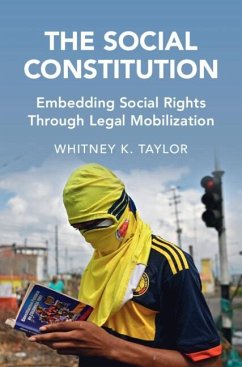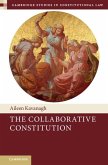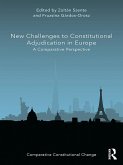In The Social Constitution, Whitney Taylor examines the conditions under which new constitutional rights become meaningful and institutionalized. Taylor introduces the concept of 'embedding' constitutional law to clarify how particular visions of law come to take root both socially and legally. Constitutional embedding can occur through legal mobilization, as citizens understand the law in their own way and make legal claims - or choose not to - on the basis of that understanding, and as judges decide whether and how to respond to legal claims. These interactions ultimately construct the content and strength of the constitutional order. Taylor draws on more than a year of fieldwork across Colombia and multiple sources of data, including semi-structured interviews, original surveys, legal documents, and participation observation. This title is part of the Flip it Open Programme and may also be available Open Access. Check our website Cambridge Core for details.
Dieser Download kann aus rechtlichen Gründen nur mit Rechnungsadresse in A, B, BG, CY, CZ, D, DK, EW, E, FIN, F, GR, HR, H, IRL, I, LT, L, LR, M, NL, PL, P, R, S, SLO, SK ausgeliefert werden.









